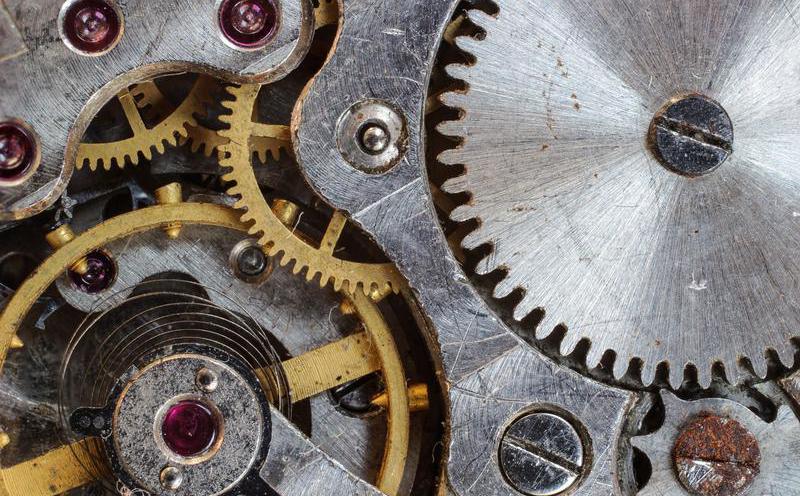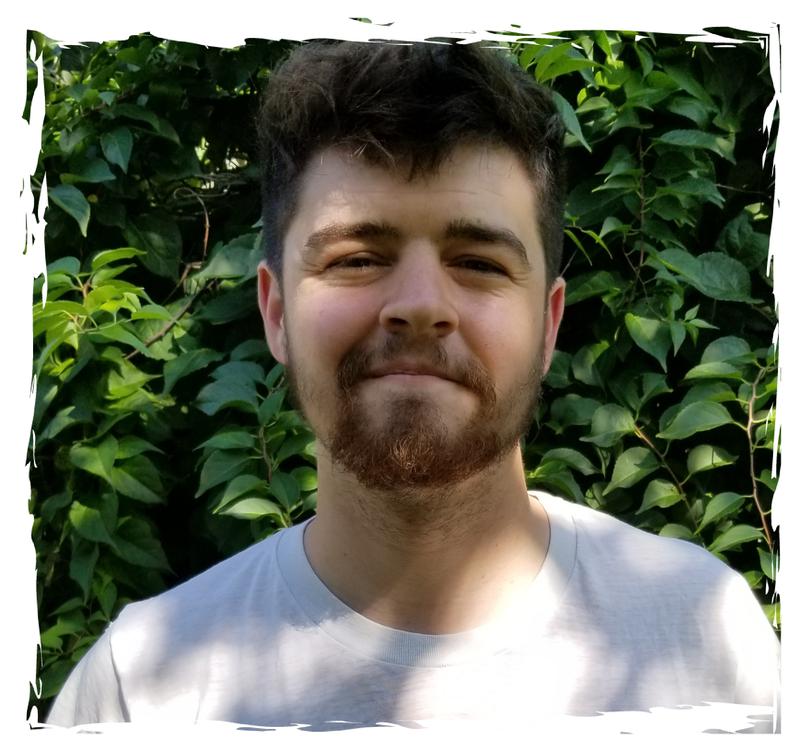Avery Gregurich
Image by Pavlofox on Pixabay
Avery Gregurich is a writer living and working in Marengo, Iowa. He was raised next to the Mississippi River and has never strayed too far from it.
Standard Horology
The “Two clocks placed on the same tower, one at the top and one at the bottom, will keep different time.” So says Albert, a retired dairy farmer, who is summarizing A Brief History of Time.
I, my partner, and the printer are sitting clockwise around a wobbling kitchen table in the printer’s house, sipping beer, and listening to Albert’s lessons on time and riverbank fishing, all wound up together. I think Albert has only been here for a little bit, but I don’t know how much time has passed since he first started talking. A grandfather clock joins us in the corner, but I can’t see its face. Amidst the growing night here, standard horology is suspended. Complications, known in horology as anything other than the display of time, abound here.
I’ve found a pen and the back of a junk envelope addressed to this house on Shooting Star Road. I’m hoping to remember my lesson learned here in the dark, as I’m not sure if I’ll ever see Albert again.
Here’s how these minutes read, if I could see the clock in the corner.
1
Albert possesses alopecia universalis. This means that the length of Albert’s body has been without a hair for over fifty years. He is 74 but looks much older, every blemish and pockmark laid bare.
2
For a while, back in his twenties, he had one single hair of significant length behind his right ear.
He says that when he was a young man out at parties, dancing in the nights of eastern Iowa, he could feel people’s eyes on his skin, wondering where it all had gone. Luckily, he found two women in his life here who liked bald men. Now, the hair and women are both gone, together.
3
Alopecia is a hereditary condition, meaning for generations there have been many hairless men and women wearing only Albert’s last name. His family history is devoid of the hair that writes most lives: first grown, then cut, from colorless to color to white and gone again. It resembles the yards of paper hanging in enormous rolls from the plywood rafters in the printer’s shop, a wall away.
4
He removes his ball cap to show us all of what isn’t under there. It’s a breathtaking motion, one he’s performed countless times before, giving us a peek at his DNA just by taking off his hat.
5
Albert admits that during their working years, dairy farmers retain at least one purple, smashed toe nail throughout. Albert kept one for 34 years. For him, it was the big toe. Now, most nights he still goes out at second milking time, before dark, though now just to drive around. That’s why he is here now. This is my only indication as to the current time of night: somewhere after milking.
6
The best bait for bass are hellgrammites, “nasty little things” he says, turning up his nose. They are better known as toe-biters and draw blood when they attach. The Wapsipinicon River here has already flooded once this summer, and threatens to again, preventing the type of consistent bank fishing effort Albert prefers. I’m prone to taking fishing advice as gospel, though I haven’t cast a line in years. My partner does, though, so I make a note that the hellgrammites should be hooked through the head and drifted along with the current.
7
Albert turned to woodworking in retirement. He made the bookcases hanging from the walls above our heads. The printer has filled them mostly with texts about the middle parts of America, a biography of Marlon Brando, and ancient guides on type-setting, the taxonomy of Iowa’s towns, and the mysteries of the natural world. Albert himself doesn’t have a computer at home, and so asks the printer, who still fires up the Linotype machine to melt his own lead for slugs, to print him out blueprints for more taxing projects from the internet.
8
Albert’s visit tonight is to bug the printer about the felled cherry tree out in the field. The neighbor up the road wants a gun case and Albert is eyeing the cherry wood for the project. Beneath the rain, everything here is mud: nothing beyond the driveway is passable. This is what lands him ungraciously here tonight, where the shifting table leg surely sticks in his throat like a swallowed lure.
9
A lifetime absorbing the din of farm equipment has left Albert almost completely deaf. This is furthered by his alopecia, all the invisible hairs which make the ear hear in him are also absent. He runs his wood jointer without ear plugs, flattening the faces of boards until they, too, are smooth. Albert mostly monologues and everyone else present repeats themselves, echoes against the walls steering Albert into another soliloquy strong on volume.
10
Albert says that he justifies the money he spends on woodworking equipment by imagining all of the money he has saved on haircuts, shampoo, and razors over the course of his life. For years, I will often think of Albert when I run the razor along my face.
11
“I don’t want to take any more of your time with him,” Albert eventually says, pointing to the printer. “You’ve come all the way from Des Moines to see him.” It’s just a few hours drive, but the way he says it, could be intergalactic travel. He shakes our hands with his boots on the threshold. He will have to wait for a dry spell to gather cherry wood enough to complete his gun cabinet. Alone now, the printer sips his beer and says, “Albert is a hell of a trip.” We all agree.
12
We came here tonight to see the printer, who is finishing up an almanac, his last after 30 years of kneading words out of nothing. He’s giving it up now because he says he doesn’t want the thing to rust. There’s a chalkboard in the corner of the print shop that outlines the contents of the last issue. On every visit after tonight, it will remain standing there unerased, another kind of clock I can try to measure the time here with.
As we head out to drive back through the night in the rain, our car cuts a map through the yard, across the wet gravel next to a neighboring house with a sign that says: “FREE APPLES. U PICK.”
The next time we stop, the printer will offer up his own apples from a tree nearest a cornfield. He will name them “Song of September” and give us plastic bags to pick up the sweetest ones from the ground where they have landed. We will battle the worms for the choicest ones, gathering them up to sit on the kitchen table for a short while until the fruit flies arrive. This will be after Sara and I have moved ourselves to live in eastern Iowa to better understand the time here. By then we will both have agreed without acknowledgement not to change the batteries in the clock hanging above those apples, though the second hand will waver for months. We will remain at 9:51 forevermore or until we depart this house for good.
I never saw Albert again, but if his hard-learned wisdom is to be trusted, it’s best to mark the true passage of time by following the hellgrammites. After a few years of waiting below the water, they emerge during thunderstorms only to immediately bury themselves again in the river’s banks. After winter, they wake to work their veined-wings clumsily, finally able to fly for a while in a quiet night free from numbers.
__________________________________________________________________________________________________________________________________________________________________________
__________________________________________________________________________________________________________________________________________________________________________
__________________________________________________________________________________________________________________________________________________________________________
__________________________________________________________________________________________________________________________________________________________________________
__________________________________________________________________________________________________________________________________________________________________________
©2022 West Trade Review
Stay Connected to Our Literary Community. Subscribe to Our Newsletter




